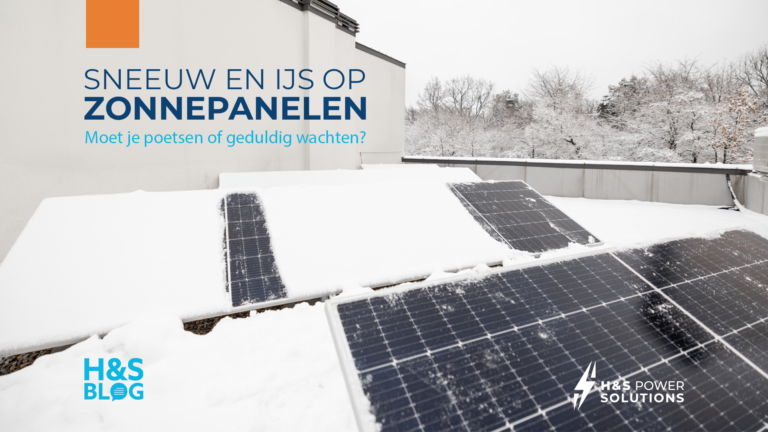What are solar panels?
Solar panels are a popular way to generate green energy. But what exactly are solar panels and how do they work? In this chapter, we explain what solar panels are and how they work.
Solar panels are panels that convert sunlight into electricity. They consist of solar cells made of silicon. Solar cells are able to convert sunlight into electricity through the photovoltaic effect. This effect converts sunlight into electric current.
There are different types of solar panels, namely monocrystalline, polycrystalline and thin film solar panels. Monocrystalline solar panels are made of a single crystal and have a higher efficiency than polycrystalline solar panels. Polycrystalline solar panels are made of multiple crystals and are cheaper than monocrystalline solar panels. Thin film solar panels are made of thin layers of silicon and have a lower efficiency than the other two types of solar panels.
For solar panels to function optimally, it is important that they are properly installed and maintained. In the following chapters, we will discuss in detail how solar panels work, the factors that affect yield, solar panel installation and maintenance, and the advantages and disadvantages of solar panels.
How does a solar panel work?
Solar panels are a popular way to generate green energy. But what exactly are solar panels and how do they work? In this chapter, we explain what solar panels are and how they work.
Solar panels are panels that convert sunlight into electricity. They consist of solar cells made of silicon. Solar cells are able to convert sunlight into electricity through the photovoltaic effect. This effect causes electrons in solar cells to move when sunlight falls on them. This creates an electric current.
There are different types of solar panels. The most common are monocrystalline and polycrystalline solar panels. Monocrystalline solar panels are made of a single crystal and have a higher efficiency than polycrystalline solar panels. Polycrystalline solar panels are made of multiple crystals and are generally cheaper than monocrystalline solar panels.
For solar panels to function optimally, it is important that they are properly installed and maintained. In the following chapters, we discuss this in more detail.
What affects the yield of solar panels?
Solar panels are a sustainable and environmentally friendly way to generate energy. But what actually affects the yield of solar panels? There are several factors that influence this.
The position of the sun
The position of the sun is an important factor in the output of solar panels. Solar panels work best when pointed straight at the sun. This means that the best yield is obtained when the sun is perpendicular to the solar panels. In the Netherlands, the sun is highest on June 21 and lowest on December 21. So it is important to place solar panels so that they capture as much sunlight as possible throughout the year.
The temperature
Temperature also affects the yield of solar panels. Solar panels work best at a temperature between 10 and 25 degrees Celsius. At higher temperatures, the yield decreases. This is because the electrical resistance of solar cells increases at higher temperatures. At lower temperatures, the yield also decreases, but this effect is less significant.
Shadow
Shade has a major impact on the yield of solar panels. If part of a solar panel is shaded, it can reduce the output of the entire panel. This is because solar panels are made up of multiple solar cells connected together. If one solar cell is shaded, it can reduce the power production of the entire string of solar cells. Therefore, it is important to place solar panels so that they suffer as little shadow as possible.
What are the benefits of solar panels?
Solar panels are not only good for the environment, but also for your wallet. Below is an overview of the benefits of solar panels:
1. Saving on energy costs
With solar panels you generate your own energy, making you less dependent on energy suppliers. This can lead to substantial savings on your energy bill.
2. Renewable energy
Solar panels are a sustainable way to generate energy. By choosing solar panels, you contribute to a better environment and reduce CO2 emissions.
3. Increase the value of your home
A home with solar panels is more attractive to potential buyers. Thus, it can lead to an increase in the value of your home.
4. Longevity
Solar panels last an average of 25 years and require little maintenance. This makes it a sustainable long-term investment.
5. Feed back to the grid
If you generate more energy than you use, you can feed it back to the grid. As a result, you will receive compensation from your energy provider.
In short, solar panels are a good investment for the environment and your wallet. By choosing solar panels, you contribute to a sustainable future and save on your energy bills.
Want more information about our solar panels?
Contact us for more information about solar panels. Our experts will be happy to help you make the right choice for your specific situation.




